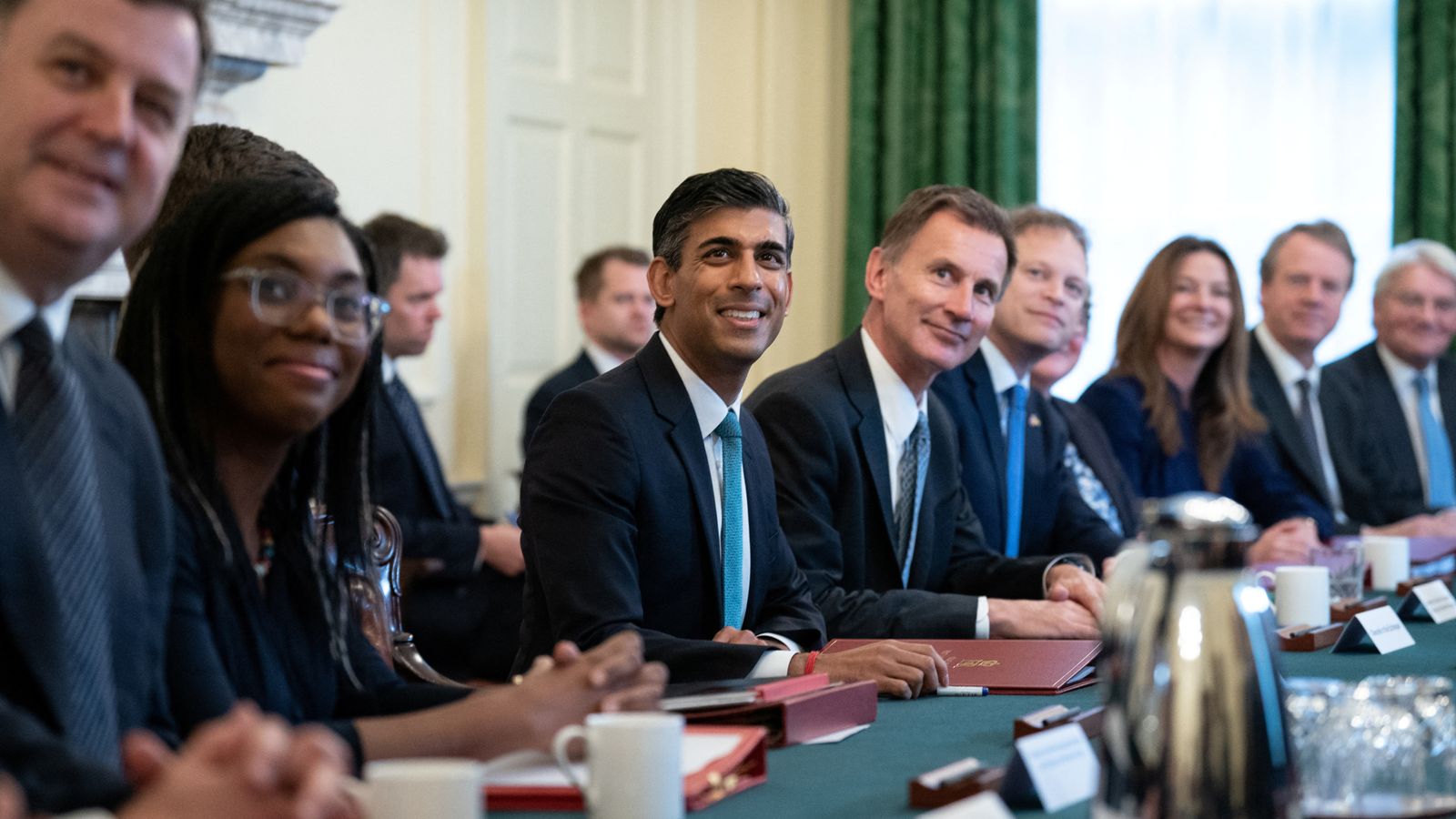Labour condemns ‘culture of lavish spending’ under Rishi Sunak as party report reveals government debit card purchases

Rishi Sunak has been accused of failing to rein in a “culture of lavish spending” across government departments as Labour published details of thousands of purchases over the past two years on taxpayer-funded debit cards.
The opposition party’s report on Government Procurement Cards (GPCs) showed 14 departments spent at least £145.5m in 2021 compared with the £84.9m spent a decade before, an increase of 71.38% in 10 years.
It follows the rules around GPCs being relaxed at the start of the COVID pandemic, with card holders able to spend up to £20,000 per transaction and £100,000 a month across all spending categories.
Labour said the increase in spending was driven by the Ministry of Justice, which went from spending £36.9m a year in 2011 to £84.9m in 2021.
The Foreign, Commonwealth and Development Office’s spending was 3.7 times higher in 2021 – at £34.4m – than the Foreign Office and Department for International Development’s combined spending of £9.3m a decade prior, according to the report.
Nine of the 14 departments analysed spent more in the last month of the financial year than any other month of the year, with overall GPC spending more than two-thirds higher in March 2021 than the monthly average for the rest of the year.
Read more:
Sunak to meet business leaders for talks on boosting economy
A worrying trend is emerging for the Tories in by-elections
Labour also found there were 34,661 transactions of over £1,000 in 2021 across the 14 departments.
The party named the largest suppliers to departments through GPCs in 2021 too – they included: Banner Stationery (£3.3m); Amazon (£1.51m); Enterprise-Rent-a-Car (£414,785); IKEA (£237,683); Posturite Chairs (£131,652); John Lewis (£105,832); KPMG (£105, 014); and Apple (£101,467).
Advertisement
It said the biggest was BFS Group, which provides food supplies to the Prison Service, with sales over £500 worth an overall £54.9m.
Labour plan to ‘get tough on waste’
Labour said it was concerned about “lax controls” over GPCs and “unchecked spending sprees engaged in by multiple departments across Whitehall at the end of each financial year”.
It claimed there was “excessive spending” on “extravagant events, expensive restaurants, high-end catering, five-star hotels, lavish gifts and hospitality, luxury furnishings and fabrics, unnecessary corporate branding, non-essential training, high-priced awayday venues, and the purchase of alcohol at taxpayers’ expense”.
Deputy leader Angela Rayner said her party would create an “Office of Value for Money” to “get tough on waste”.
“Britain may be facing the worst cost of living crisis for decades, but whether as chancellor or prime minister, Rishi Sunak has failed to rein in the culture of lavish spending across Whitehall on his watch,” she said.
“Today’s shocking revelations lift the lid on a scandalous catalogue of waste, with taxpayers’ money frittered away across every part of government, while in the rest of the country, families are sick with worry about whether their pay cheque will cover their next weekly shop or the next tranche of bills.”
Please use Chrome browser for a more accessible video player
12:07
Cost of living crisis: how are young people coping?
Tories hit back at Labour report
Meanwhile, a senior Conservative source hit back at Labour and its report.
“Awkwardly for Labour HQ they’ve forgotten that they introduced these ‘civil servant credit cards’ in 1997,” they said.
“By 2010 Labour was spending almost £1bn of taxpayers’ money on everything from dinners at Mr Chu’s Chinese restaurant to luxury five-star hotels.
Click to subscribe to the Sophy Ridge on Sunday podcast
“The Conservatives swiftly stopped their absurd profligacy, cutting the number of cards, introducing a requirement for spending to be publicly declared and introducing controls.
“Typically, Labour’s ‘big idea’ is to spend millions to establish yet another quango, stuff it with thousands of bureaucrats and give them gold plated pensions.”